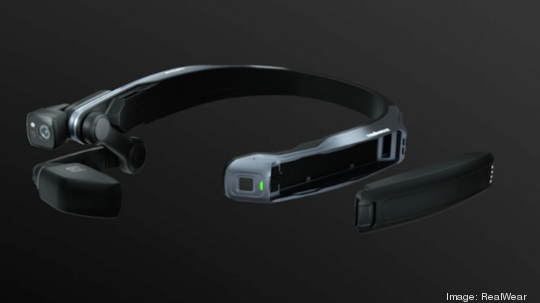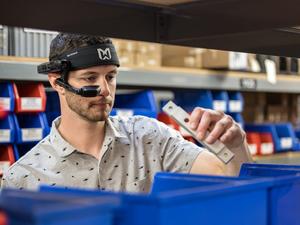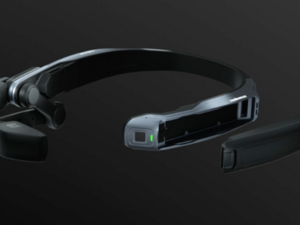
A SPAC merger that would have brought Vancouver-based wearable computer maker RealWear Inc. to the public markets has been scrapped.
The companies announced Tuesday that the deal was terminated on April 7 and that neither party was required to pay a termination fee, according to filings with the Securities and Exchange Commission.
RealWear Chairman and CEO Andrew Chrostowski commented on the deal ending and the company’s future funding plans:
“Almost half of the Fortune 100 companies trust RealWear for their frontline teams. As such we remain a strong and reliable platform with more than 70,000 units deployed and 5,000 end customers. Given that we’re well positioned to continue to grow we have a strong plan forward, and are pursuing additional funding strategies that include a Series D round. That said, due to current market conditions, we will no longer be pursuing the specific business combination agreement with Cascadia Acquisition Corp."
In February, RealWear and Seattle-based Cascadia Acquisition Corp. (Nasdaq: CCAI) announced a merger that would create a $375.5 million company. CCAI is a special purpose acquisition company, known as a blank check company, that was created to source a deal in the robotics, automation and artificial intelligence space.
The resulting merger would have made RealWear a public company.

SPAC mergers were a popular way for companies to go public in 2020 and 2021 when there were 248 and 613 such deals, respectively. However, the strategy has lost much of its luster. Activity slowed in 2022 when just 86 SPACs occurred, according to the research site SPAC Analytics.
RealWear has more than 100 employees. The company makes a head-mounted, wearable computer designed for industrial workers. Its products are in an area it calls “assisted reality.”
Unlike with virtual reality, RealWear users' field of vision remains completely open. That is important because workers are in environments and around equipment that require full attention for safety. The products are hands-free. The company has also developed cloud-based software to manage device fleets, and the platform can integrate existing software tools like video conferencing or custom tools.
RealWear had 2022 revenue of $20.5 million, up from $13.9 million in 2019, according to regulatory filings. The company has raised a total of $126.8 million from investors.







